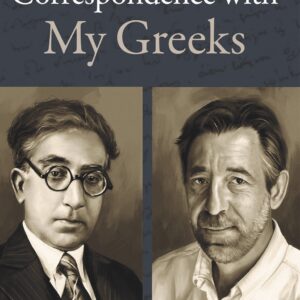Sages teach that a fence around wisdom is silence. And in the months since October 7, when each moment brings some fresh horror, I’ve often found it easier to stay silent and look to the past, to the ancient teachings the Torah, the Hebrew Bible, offers. In some ways, this feels like hiding. Yet I’ve been searching for models of how I, how we—people of varied backgrounds and beliefs—might not only survive this moment but, when we are compelled to speak, might find ways to be heard by those we’re most trying to reach.
So I’ve been spending a great deal of time in the wilderness of Exodus, wandering with the Israelites and wondering how I might bring back what I find into the current world, to be, as Chassidic teachings say, the Torah’s “feet.”
On Passover—a holiday of spring and new beginnings—we are commanded to relive the Israelites’ exodus from Egypt led by Moses, the journey from slavery to freedom, by retelling this story. Because Jewish tradition places great significance on names, much is made of the fact that Pharaoh in Hebrew can be read as Peh Rah, “bad mouth”—a negative, hateful voice that keeps us in chains. This is contrasted with Pesach, the Hebrew name for Passover, which can be read as Peh Sach, “the speaking mouth,” which allows the more honest versions of ourselves to emerge.
Our mouths, our words, can be used for good or ill, to liberate or enslave, to bless or curse or encourage, to ask difficult questions. We share our stories, so others might be invited to tell their stories in turn, allowing us to not simply scream at and past each other but to see what values we might hold in common, to perhaps one day even arrive at a place of mutual understanding and esteem.
Moses is, after all, one of the preeminent prophets in both Judaism and Islam—a great leader and teacher, a humble man, and a person of deep and pervasive flaws. This last fact is especially important, as it allows us to not worship but relate to him.
When God comes to Moses and asks him to speak to Pharoah as God’s prophet, Moses replies he is unworthy as he has aral sfatayim. Often translated as “impeded speech,” the literal translation is much stranger: “uncircumcised lips.” Yet aral can also mean “unharvested” and sfatayim, “language.”
What might it mean to have “unharvested language?”
When crops remain unharvested, they go to seed and stop producing. When we speak without first considering our words, repeat and repost ideas and slogans without thinking, or add our names to petitions we haven’t completely read, we let our critical faculties lay fallow and the better parts of ourselves go to seed within us. From Moses’s hesitation, we learn we can instead opt to tend our words with care, choosing which to compost and which to share, which aspects of ourselves to cultivate and which to witness as they arise but not react to or act upon.
And unlike Pharaoh who rules alone, Moses agrees to be God’s prophet only with his brother and sister by his side. To be in community with others is to harvest our language and actions so that they might nourish and plant seeds for future harvests.
This is true in periods of relative peace, doubly true in times of anger and grief.
For Moses’s story also shows the danger inherent in lashing out. When his people are thirsty and threatening revolt, God instructs Moses to speak to a rock so it might bring forth water. Instead, Moses raises his staff and strikes the rock twice and there is water enough for all the people and their livestock too. Yet it’s in this same moment God tells Moses that because of his disbelief, he will never set foot in the land once promised to him.
Is this because he strikes the rock not once but, in his desperation and doubt, strikes it twice? Or is it, as some commentators say, that in anger he struck the rock instead of speaking to it? Even if those strikes achieved the desired effect, Rabbi Lord Jonathan Sacks taught that as a leader it is a question of precedence: for the long-term health of his community, Moses must learn to speak to this life-giving rock as he must learn to lead through not “power but persuasion.”
Moses is, after all, a man whose life is marked by actions fueled by rage, righteous and otherwise. Yet when on Sinai, God grows furious at the Israelites for building the golden calf and wants to destroy them and begin again, making of Moses a new Adam, it is Moses’s experience with his own anger that helps him know what to say. He points to the past, reminding God of God’s long relationship to the Israelites and promises made, reminds of the care God showed in liberating them from the Egyptians’ yoke, points to the future and all that God and the Israelites might share, speaking in this measured way until God renounces the plans for punishment.
Fear, of course, breeds anger; anger, more fear; and striking out at others gives the illusion of control, the simulacrum of righteous action, while simply making others suffer as we do. When someone hurts me, my instinct is to issue a corrective, to lash back. Yet, this exchange on Sinai encourages me to pause before responding, to consider my relationship to this person past, present, and possibly future, and consider them not just as their words on a screen or in the air between us but as a full complicated person who might well continue to be a part of my life, whether personally or professionally. This helps me take a deep breath and then see how I might not just speak at but with them.
Of course, Moses eventually comes down from the mountain. Though flush with this moment of divine diplomacy, when he sees his people celebrating their golden idol, he blazes forth with the anger he’d just advised God against and smashes the tablets etched with God’s words. From this, we learn too: growth is not linear; our work on ourselves is never through; mistakes will be made.
And as the smashed remnants are deemed holy and carried in the tabernacle alongside the second intact set of tablets, we learn we should not bury but carry the evidence of those lapses with us as reminders of how we might act differently when faced with similar choices.
So every year, as the Hebrew calendar resets and Jews gather together to read again the five books of Moses, as we did this past October 7, we will find the stories changed not because the text has changed but because we have. We will begin, of course, at the beginning: witness the world spoken into being and perhaps ask ourselves what worlds we create with the words we choose to share. If we read carefully, we might also notice that even in the earliest moments of existence, darkness was already there. When God first speaks, it is light that needs to be created.
Jessica Jacobs’ third collection unalone, poems in conversation with the Book of Genesis, was published this March by Four Way Books. Winner of the New Mexico Book Award and finalist for the Lambda Literary Award, Jessica is the founder and executive director of Yetzirah: A Hearth for Jewish Poetry.





